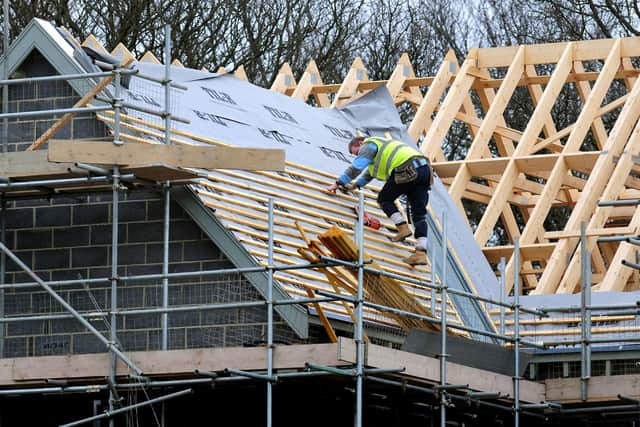Glasgow architecture firm calls for adoption of new green housebuilding strategy
Anderson Bell + Christie said the “ground-breaking” approach would prevent more than 7 million tonnes of carbon dioxide from entering the atmosphere from new homes due to be built in Scotland by 2045 – the year the Scottish Government aims to become a net-zero society – and is ready to be implemented today.
The firm added that its method would reduce all new homes’ energy bills by more than £880 million altogether by 2045 – a 34 per cent saving when compared to a current standard newbuild.


Advertisement
Hide AdAdvertisement
Hide AdAnderson Bell + Christie believes the strategy can be implemented on a mass scale immediately – and it is calling on the Scottish construction industry to harness its offering. The approach has already been adopted by City of Edinburgh Council as part of its design guidance for the council-led house-building programme.
Jonathan McQuillan, director at Anderson Bell + Christie, said: “Scotland has ambitions to be a net-zero society by 2045; therefore it is crucial that we change our approach. One of the most important considerations in a net-zero strategy for Scotland has to be the role of citizens.
"This approach is an opportunity for developers and local authorities to look at a location and ask themselves how to make living there sustainable, affordable and healthy. Offsetting carbon is possible in a placemaking conversation – and we are confident that communities are ready to play their part.”
A message from the Editor:
Thank you for reading this article. We're more reliant on your support than ever as the shift in consumer habits brought about by coronavirus impacts our advertisers.
If you haven't already, please consider supporting our trusted, fact-checked journalism by taking out a digital subscription.
Comments
Want to join the conversation? Please or to comment on this article.
